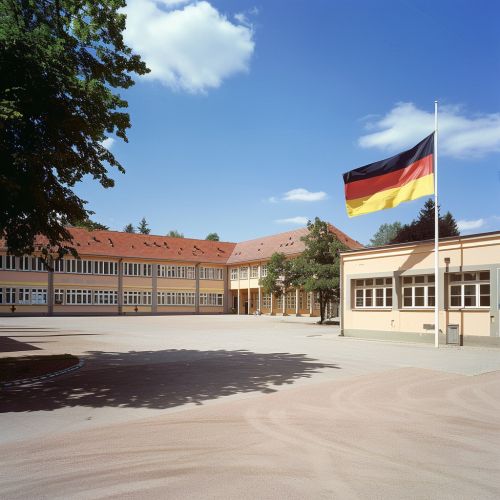Education in Germany
Overview
Education in Germany is a comprehensive system that spans from early childhood education to tertiary level and beyond. The system is overseen by the federal states, each of which has its own education ministry. The structure of the education system in Germany is complex, with a variety of options available to students at different stages of their education journey.


Early Childhood Education
Early childhood education in Germany, known as Kindergarten, is not compulsory but is widely available. Children between the ages of three and six attend Kindergarten, where they engage in play-based learning activities designed to develop their social, emotional, and cognitive skills. The Kindergarten curriculum in Germany is designed to prepare children for the formal education system.
Primary Education
Primary education in Germany, known as Grundschule, is compulsory and lasts for four years, from first to fourth grade. The curriculum covers basic subjects such as German, mathematics, general science, social studies, music, and physical education. The aim of Grundschule is to provide students with a solid foundation in these subjects, preparing them for the more specialized education that follows.
Secondary Education
Secondary education in Germany is divided into three main types of schools: Hauptschule, Realschule, and Gymnasium. The type of school a student attends is largely determined by their academic performance in Grundschule, although parental choice also plays a role.
Hauptschule
Hauptschule is the least academically rigorous of the three types of secondary schools. It provides a basic general education and prepares students for vocational training. Students typically attend Hauptschule from the age of 10 to 15 or 16.
Realschule
Realschule provides a broader general education and prepares students for a range of careers, from manual and technical occupations to administrative and commercial roles. Students typically attend Realschule from the age of 10 to 16 or 17.
Gymnasium
Gymnasium is the most academically rigorous of the three types of secondary schools. It prepares students for university study and other forms of higher education. Students typically attend Gymnasium from the age of 10 to 18 or 19.
Tertiary Education
Tertiary education in Germany includes universities, Fachhochschulen (universities of applied sciences), and art and music colleges. Admission to these institutions is competitive and is based on the Abitur, the final examination taken at the end of Gymnasium.
Vocational Education and Training
Germany has a strong tradition of vocational education and training (VET). The dual system of vocational education combines classroom-based learning at a vocational school with on-the-job training at a company. This system is highly regarded both nationally and internationally for its effectiveness in preparing students for the world of work.
Adult Education
Adult education in Germany is widely available and includes a range of opportunities for lifelong learning. Institutions such as Volkshochschulen (community colleges) offer courses in a variety of subjects, from languages and arts to professional development and vocational training.
